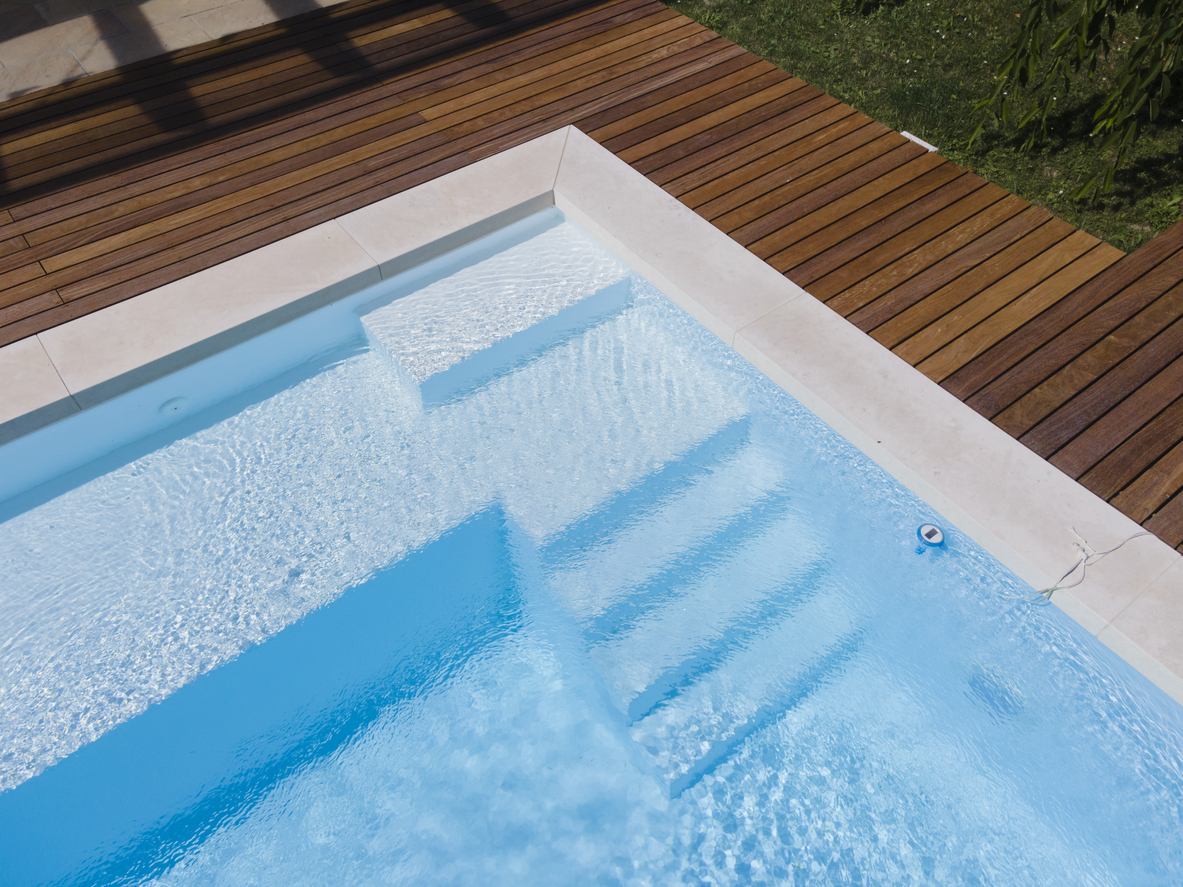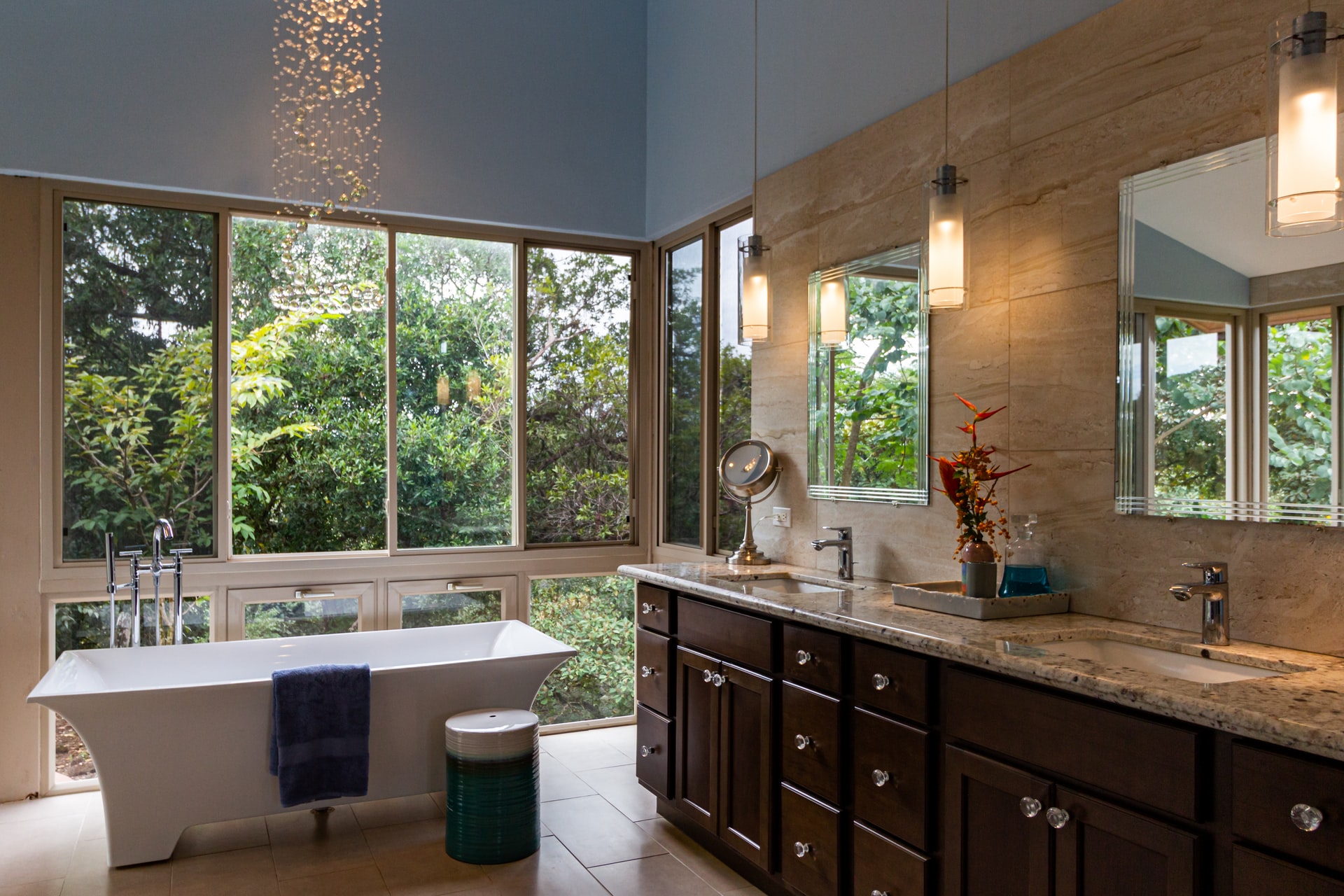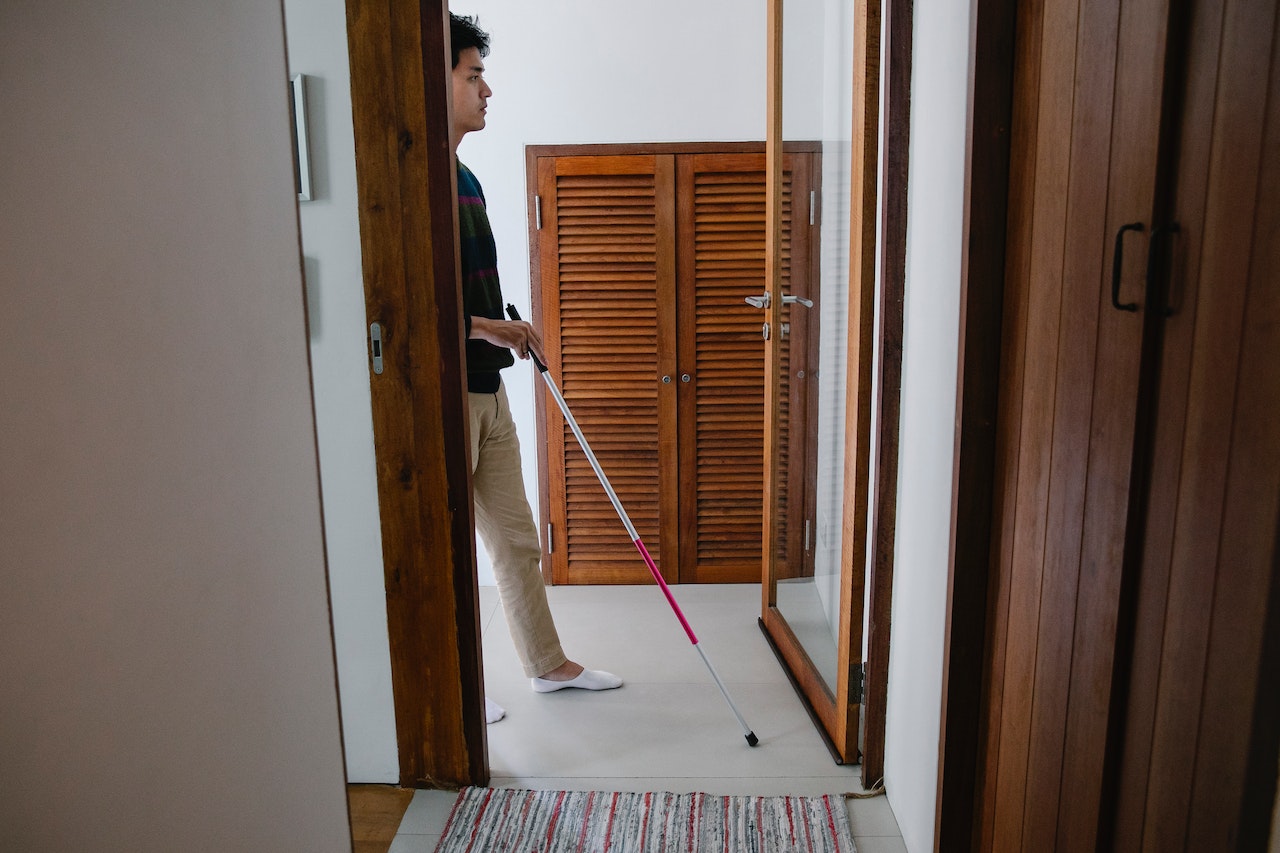If you love to swim or you’re looking for a great way to entertain the family all summer, buying a pool is a good choice. For those who love relaxing, hot tubs and saunas are another excellent option that will enhance your lifestyle. If you’re thinking about buying a pool, a hot tub, or a sauna, there are many important things to consider before you make a purchase. Whether you’re getting ready to buy one or need information about how to maintain them, this guide explores some ways to buy the right pool or hot tub for you and keep it in excellent condition.
Table of Contents
Swimming pool
Swimming pools offer a lot of benefits besides just being a great way to cool you down on a hot day.
Exercise: Swimming is a great low-impact exercise that can provide a full-body workout that can help build strength, increase cardiovascular fitness, and improve flexibility. Swimming is also a great way to reduce stress and improve mental well-being.
Entertainment: Pools can be a fun gathering place for family and friends, especially during summer. They are a great place to create memories from teaching kids to swim to birthday parties or special ocassions. Having a pool can also encourage socialization, it can provide a space for neighbors to come together and get to know each other and can even help strengthen community bonds.
Property value: A well-maintained pool can add value to a home and may make it more attractive to potential buyers especially in areas with warmer climates. A swimming pool can be an attractive and functional addition to a home’s outdoor living space.
What to consider when buying a pool
With all the benefits owning a pool sounds great, but you need to have a plan in place before deciding to get one. Here are a few key things that every homeowner should take into consideration before purchasing a new pool.
Goals: Think about why you want to add a pool to your backyard. Is it for exercise, keeping the kids happy when the weather is warm, or do you want a cool place to host fun outdoor parties? The reason why you want a pool should be the first thing to consider before you decide whether or not it’s the right choice for you.
Size and quality: Do you want an elaborate, large pool with waterfalls, or would you prefer something simple like a round, above-ground pool? Explore the various pool styles, shapes, and sizes to help you determine which one is best. Higher quality pools tend to last longer and look nicer in your backyard, but they might be too expensive for your budget. Some typical choices are vinyl, fiberglass, concrete, gunite, or specialty surfaces.
Budget: The cost of a pool varies greatly depending on the style, size, and installation method. On average, a standard inground pool can cost anywhere from $31,000 to $50,000 or more. Make sure that you have the money for a new pool in your budget. Don’t forget the cost of digging, concrete, and fencing for your pool, too. Be prepared and get several estimates from pool contractors in your area, so you know what you’re working with. Some pool installation companies offer to finance so you can make monthly payments. Monthly costs should be around $100.00 to have the pool serviced weekly. You may also get charged for additional chemicals as needed.
Property value: Many home buyers see a pool as an asset, while others might see it as a hindrance. Overall, a pool should increase your property value if you ever plan to sell your home. While the amount that it increases the value varies, you might be able to ask around 7% more for your home once the pool is installed.
Space: A pool will take up a lot of space in your backyard, so be prepared to sacrifice if your yard is on the small side. You can always choose a smaller pool if you want to salvage some of your yard, but most people want the biggest pool they can afford. Your pool installation contractor can help you determine what size pool will be best in the amount of space you have available.
Installation: Installing a pool takes a lot of work and time. Be prepared for your yard to be dug up and for piles of dirt to be everywhere until it’s complete. If you have many trees in your yard, you’ll need to pay to have them removed. Knowing how to install a pool the right way will save you a lot of headaches. A qualified, experienced contractor should make the process easy and quick so you can start swimming ASAP.
Pool maintenance
Following these maintenance tips will keep your pool clean and looking its best.
Surface: Skim the surface of your pool daily using a net to remove large debris like twigs and leaves to prevent your filter from clogging.
Walls: Scrub the walls of your pool with a brush attached to a telescoping handle to remove dirt, residue, and algae.
Floor: Vacuum the pool floor often using an attachment, or you may use an automatic vacuum cleaner that slowly moves across the bottom of the pool to keep it clean.
Filters: There are many ways to clean your filter, depending on the type you have. Backwashing means you run the pump backward to remove sand and dirt by flushing it clean. Check with your pool filter manufacturer for more detailed instructions on how to keep it clean.
Cover up: A cover is a must for a pool. Always cover your pool when it’s not in use to protect it from leaves, insects, and dust. It will help as well to keep the temperature of your pool while not in use. Don’t forget to clean your covers frequently to keep them free and clear of mold, mildew, and algae.
Pool Fencing: It’s important to ensure safety. In addition to regular pool maintenance, it’s crucial to prioritize safety, especially if you have young children or pets. Installing a pool fence is an essential measure to prevent accidents and create a secure pool environment.
Chemistry: Testing pool water is very important for a wonderful swimming pool experience. Take a sample of your pool water regularly (minimum weekly) using a test kit to confirm the pH level of your swimming pool water, the Free Chlorine, Total Chlorine, Alkalinity, Hardness, CYA level, and Metal levels to determine if the chemical levels are balanced. It is best to have the pool water tested at your local pool store to determine if the chemical levels are at the right amount.
Hot tub
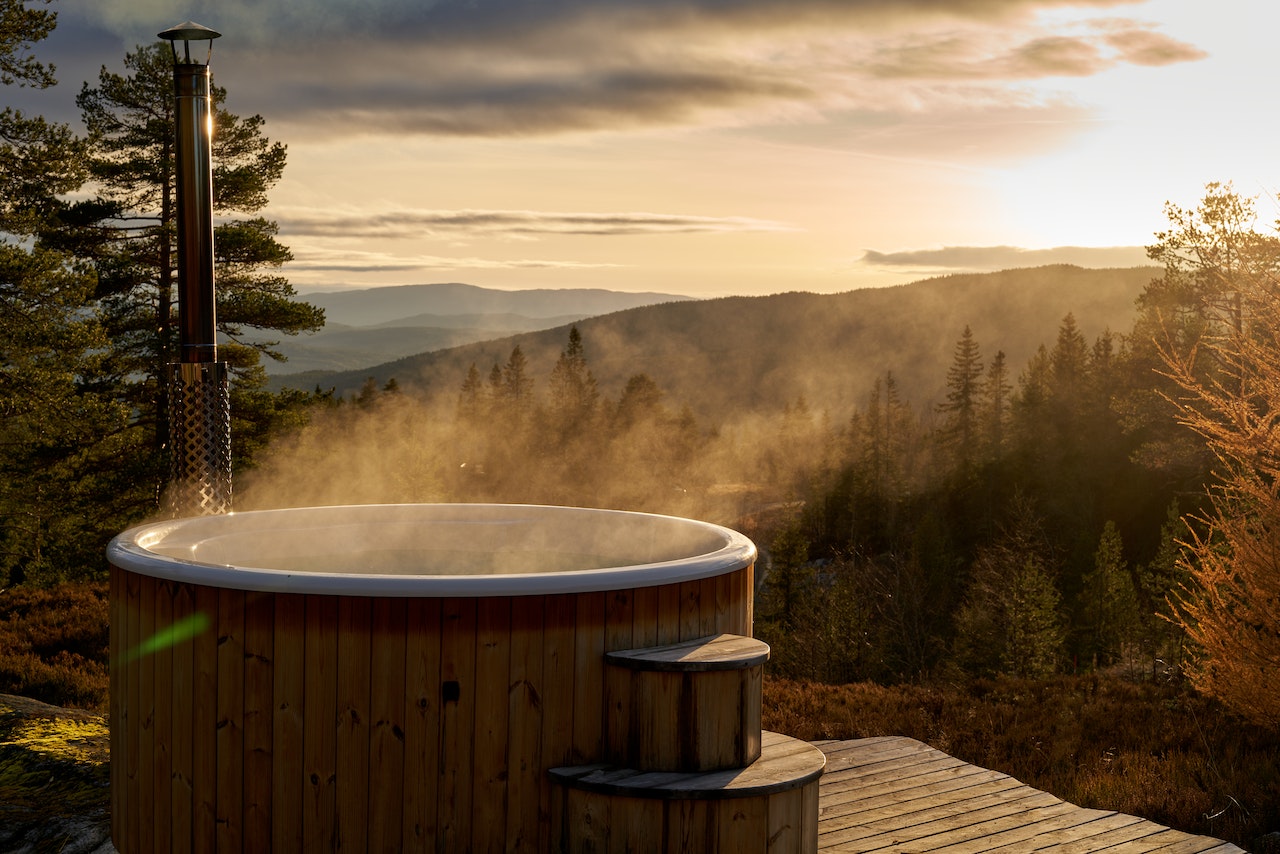
Hot tubs are popular for homeowners seeking relaxation. Warm water can provide a variety of benefits for both physical and mental well-being.
Stress relief: Soaking in a hot tub can be a great way to unwind after a long day and promote relaxation. The warm water and massaging jets can help reduce tension in the body, which can help lower stress and anxiety and positively impact well-being.
Pain relief: A hot tub helps promote circulation and reduce inflammation. The warm water and massaging jets of a hot tub can help relieve muscle tension and soreness, making it a popular feature for athletes or those with chronic pain.
Improved sleep: Dipping in a hot tub before bed can help promote relaxation. Hot water promotes circulation as it helps deliver oxygen and nutrients to the body’s tissues, including the brain, which can help promote restful sleep.
What to consider when buying a hot tub
If you love the idea of relaxing in your own hot tub, there are a few key things to keep in mind. These are some of the most important features so you can make the right choice for yourself and your family.
Types of hot tubs: There are many hot tub styles to choose from, including portable, inflatable, in-ground, and wooden. Be sure to research various hot tub types to help you decide which one will work best for your goals.
Size and space: Hot tubs are generally smaller than pools, so you should be able to fit one in your backyard. A deck-mounted hot tub is fantastic if you want something compact and convenient. Inflatable or portable hot tubs can be stored away in the off-season, and they’re easier to maintain. Look at various sizes and compare them to the amount of space you have to decide which one is best.
Location: Most hot tubs are placed directly on the patio or deck for easy access. The size of your hot tub may determine which location you choose but plan your layout carefully before installation.
Type of seats: Hot tubs typically seat anywhere from two to as many as eight people. Lounge-style seats are great for relaxing, and many include a detachable headrest if you want to lie back and chill.
Electrical connections: Your hot tub must connect to an electrical system with a 120-volt outlet for the jets and heater to work. Contact a qualified electrician to make sure that everything is connected correctly and safely.
Material: You’ll find hot tubs made of resin, acrylic, wood, and vinyl. The material of your hot tub helps to determine the price, the feel, and how easy it will be to maintain, so shop carefully.
Jets: Hot tub jets produce a mixture of water and air to provide you with a soothing massage. Make sure your hot tub doesn’t have too many jets, or it could decrease the pressure and cost you more to operate.
Pumps: A hot tub needs pumps to provide flow to the jets. Ensure the jet to pump ratio is good and that they’re mostly even to ensure a proper water flow and smooth operation.
Lighting and water features: A lighted hot tub will allow you to relax during the evenings and adds a fun look, too. Lighted water features are also fun, but they will increase the cost of your hot tub.
Filtration: Your spa will need a few filters to help keep the water clean and remove debris. Some spas use just one or two filters, while larger ones may use as many as five.
Price: The price of your new hot tub will depend on the manufacturer, size, material, and any special features you include. The more lighting and features it has, the higher your cost will be.
Hot tub maintenance
Here are some helpful hot tub maintenance tips to help keep your hot tub clean and functional.
Circulation: Keep the water circulating, so it runs through the carbon filter as often as possible. Some hot tubs include an automatic circulation mode to move the water at regular intervals. Either way, you should circulate the water for 15 to 20 minutes twice per day.
Cleaning: Clean the walls and jets of your hot tub weekly using white vinegar and a non-abrasive sponge. This will help to remove mold, algae, and it will keep your jets nice and clear so they’re functioning correctly. Rinse the filters with warm water often. Whenever you drain and refill your hot tub, soak the filters in a chemical cleaner to remove stubborn debris and dirt and extend their lifespan.
Chemistry: Keep plenty of chemicals on hand and make sure you’re testing the pH level of your hot tub water often. You may need to add an alkalinity increaser to keep the pH level from changing too much. Follow the manufacturer’s instructions on what types of chemicals you should add and how much is needed.
Sauna
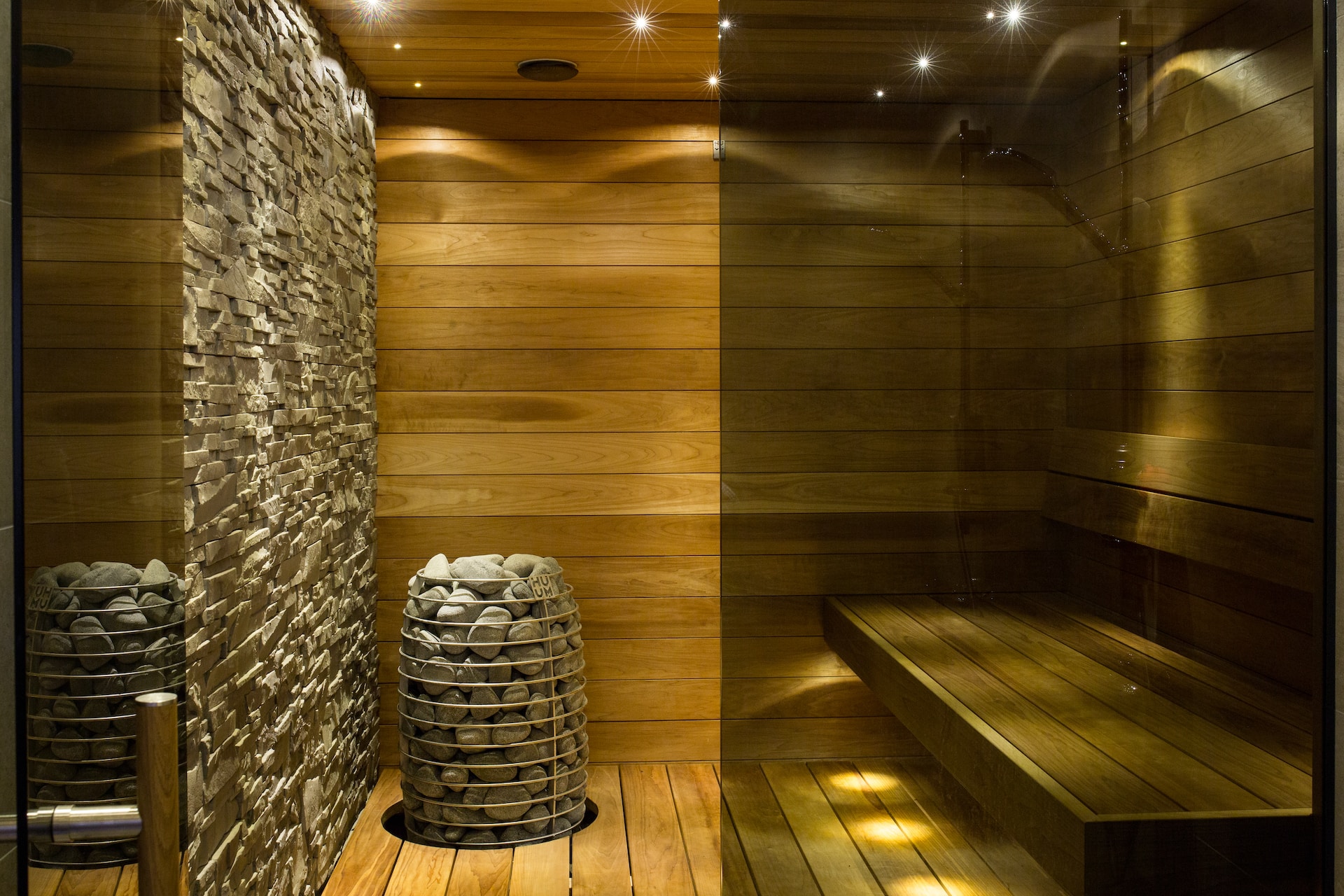
Saunas have been used for centuries as a way to promote relaxation and provide relief for several conditions. With modern technology, saunas have become more accessible and are now a popular feature in many homes. The heat and steam of a sauna can help improve physical and mental health, making it a great addition to any wellness routine.
Promotes relaxation: Saunas are designed to create a relaxing and calming environment, which can help reduce stress and anxiety. The heat from the sauna can also help to relieve muscle tension, which can further promote relaxation.
Skin health: The heat and moisture of a sauna room can help open up pores and increase blood flow to the skin, leaving the skin looking refreshed and rejuvenated.
Improved respiratory health: Saunas can help improve respiratory health by opening up airways and promoting better breathing. The heat and moist air can help clear congestion and relieve symptoms associated with respiratory conditions like asthma and allergies.
What to consider when buying a sauna
Having a sauna is the perfect option to upgrade your relaxation space and take it to the next level. There are several important considerations to ensure you choose the right one that fits your needs, space, and budget.
Type of sauna: There are different types of saunas, such as traditional Finnish, infrared, and steam saunas. Barrel saunas are a popular option for those who want a small, easy-to-install sauna. Think about which type would best suit your needs and preferences as well as which heating method fits best. Saunas can be heated with electricity, gas, wood, or infrared technology. Consider which heating method would be most convenient and cost-effective for you.
Size and capacity: Saunas come in different sizes. The size you choose will depend on the available space in your home and the number of people who will be using it. Consider the number of seats, the dimensions of the heat generator, and the amount of space that is required for its installation.
Materials and quality: Some of the most common materials for saunas are wood, tile, or glass. Look for materials that are durable, water-resistant, and easy to clean. Consider the ones that will fit your budget without compromising the quality, the materials used in the construction of your sauna can impact the overall experience.
Ventilation: Proper ventilation is crucial for a safe and effective sauna experience. Look for ventilation systems that are designed specifically for saunas and can handle the heat and moisture produced during their use.
Cost: Saunas can range in price depending on the size, materials, and features. On average, a basic indoor home sauna can cost between $3,000 to $6,000. Consider your budget and prioritize which features are most important to you. Keep in mind that while a higher-priced sauna may have more features, it may not necessarily be the best fit for your needs and budget.
Installation: Look for systems that are easy to install and require minimal maintenance. Installing a sauna requires a professional. They will ensure that it’s installed properly, including the placement of the heat generator, ventilation system, and controls, which can help prevent potential safety hazards and ensure optimal performance. Make sure to also consider the warranty and any ongoing support offered by the manufacturer.
Safety: Saunas require some safety considerations. A professional installer can also help verify that the sauna is properly insulated and sealed, which can help prevent heat from escaping and causing damage to surrounding surfaces or structures. A professional will make sure that the sauna is compliant with local building codes and regulations. This can include requirements for proper ventilation, electrical wiring, and safety features like emergency shut-off switches and anti-scald controls.
Sauna maintenance
Proper maintenance is essential for ensuring its functionality as well as home safety. Here are some tips to help you maintain your sauna:
Regular cleaning: Saunas should be cleaned regularly to remove sweat, bacteria, and other debris that can accumulate over time. Use a mild cleanser and warm water to clean the benches, walls, and floor. Ensure that your sauna has proper ventilation, and keep the door open for a while after every use.
Monitor humidity levels: High humidity can lead to mold growth and mildew, so it’s important to monitor and maintain proper humidity levels in your sauna. Keep a hygrometer on hand to measure the levels and adjust ventilation as needed.
Check the heater: The heater is the most important component of a sauna, so keeping it in optimal condition is crucial. Check the heater regularly for signs of wear and tear, and have it inspected and serviced by a professional if necessary.
Regular inspections: Inspect your sauna regularly. Check the heat generator, temperature sensors and controls, and other components to ensure everything is working correctly. Check the door too, it should fit snugly and create a tight seal to prevent heat from escaping.
Professional maintenance: It’s recommended to have a professional check your sauna at least once a year to make sure everything is working properly and prevent any potential issues.
Protecting your investment
Whether you are having a pool, a hot tub, or a sauna at home, you need to consider the warranty of any of those to avoid unexpected expenses. Pools, hot tubs, and saunas often will come with a product warranty from the manufacturer who made them. On the other hand, many homeowners also have home warranties that may provide separate coverage. But, what are the differences between a product warranty and a home warranty, and which will cover my water features the best?
Product warranty: A product warranty is provided by the company that manufactured the pool or hot tub, covering defects in materials or functionality. This type of warranty usually covers the cost of repairing or replacing any defective parts or components of the feature. However, it typically has a limited coverage period, usually one year, and may not cover issues caused by normal wear and tear, weather damage, or improper installation or maintenance.
Home warranty: A home warranty is a service contract that provides coverage for the repair or replacement of major home systems and appliances, including swimming pools, hot tubs, and saunas. It typically covers a broader range of issues and can include coverage for normal wear and tear, as well as unexpected repairs or replacements. However, they usually require an annual fee and may have limitations and exclusions in their coverage. These are some things, that depending on your coverage, a home warranty can fix.
- Pump and motor
- Heater coverage
- Electrical system coverage
- Plumbing coverage
- Jet and blower coverage
Whether you want to go for a swim or relax by the jets, a pool, hot tub or sauna is a beautiful addition to your home. Use these tips to help you decide which option is right for you and what to consider before you take the plunge. With the right style and proper maintenance, you will enjoy your own personal oasis for many years.
